In our final edition of The PI Case Files, we meet arguably the two greatest investigators of all, plus a relative newcomer whose inclusion may surprise some. However, we think that the verdict of history will place him shoulder to shoulder with the very best. As with previous articles in the series, click on the file image to see it at higher resolution.
 Charlie Parker
Charlie Parker
Charlie Parker is a private investigator based in Portland, Maine, where the climate is bleak and wintry. It surprises some readers to find that Charlie Parker’s creator, John Connolly, is Irish rather than American. However, his East Coast settings are utterly convincing, and his stories are edged with grief, hope and painful realism mixed in with a fiery dash of the supernatural. These aren’t ripper novels though, instead we have the subtlest touches of unexplained menace – very much in the style of MR James – which are doubly terrifying in their ambiguity.
Parker’s dad was a cop, and he himself served with the NYPD. Circumstances force him to move to Portland, Maine, where he puts his policing skills to work as a private investigator. His world is shattered when his wife and young daughter are brutally murdered in their house. This tragedy, and the resultant psychic fallout, haunt him constantly. Parker has two trusted allies to whom he turns when things get tough. Angel is a streetwise, shambolic but cunning thief, while his partner Louis is a black assassin – stylish, svelte and laconic, with a terrifying sense of right and wrong.
Charlie Parker grabs us in two ways. Firstly, his troubled past binds us to him like a friend, and we wonder how he can cope with the terrible events which happened in his house. We also wonder at the smells, sounds and images of those events which seem to linger still after all these years. Are they real, or does he have an over-active imagination? Secondly, we stand shoulder to shoulder with him as he takes on relatively straightforward cases of human greed and violence, feeling the same chill as he does when he confronts more inexplicable adversaries, some of whom seem as old as time itself. There are usually clear battle lines between the ancient powers of good and evil and Parker embodies, like no other modern fictional character, all the qualities of a real hero. He is flawed, yet conscious of this; capable of fear, but too brave to run away from danger; and has great humanity untouched by sentimentality.
We first meet Parker in Every Dead Thing (1999). Devastated by the slaughter of his family by a mysterious entity called The Travelling Man, Parker’s day job sees him pursuing a case involving backwater towns in Virginia, drug-fuelled parties in New York, and the over-arching threat of untouchable mafia dons. In The Whisperers (2010), Parker faces yet another enigmatic foe, The Captain. With another malcontent called Herod, you might guess that ancient wrongs merge with present woes in the badlands along the Canadian border.
The Charlie Parker Collection
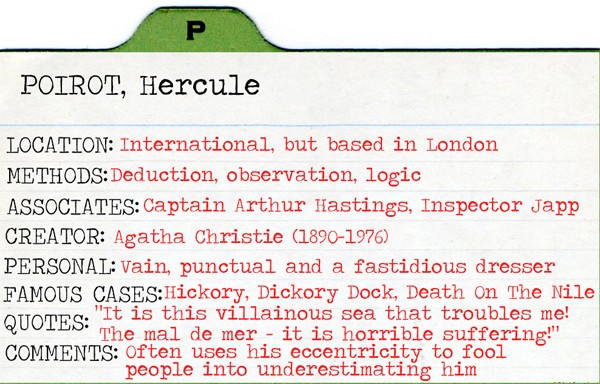 Hercule Poirot
Hercule Poirot
Poirot must be second only to Sherlock Holmes in both celebrity and longevity. He has been portrayed many times on screens small and big. Whereas Holmes buffs might argue about the relative merits of Nigel Rathbone and Jeremy Brett, the best screen personification of Poirot must be that of David Suchet. Agatha Christie introduced her Belgian detective to the world in 1920 with The Mysterious Affair at Styles.
“He was hardly more than five feet four inches but carried himself with great dignity. His head was exactly the shape of an egg, and he always perched it a little on one side. His moustache was very stiff and military. Even if everything on his face was covered, the tips of moustache and the pink-tipped nose would be visible.” This is the brilliant description of Poirot, narrated by Captain Arthur Hastings, his long suffering foil. Poirot primps and minces through English society in the middle years of the 20th century, frequently allowing himself to be despised and underestimated by the sneering aristocrats who engage him to solve crimes.
Poirot certainly belongs in a particular crime fiction niche. He is vain, fastidious, pedantic and ever-so-slightly camp. He inhabits a world dead for so long that we sometimes wonder if it ever really existed. The country houses, the elegant but devious dowagers, the exotic foreign travel where a trip to Istanbul or Cairo involved complex logistics worthy of a military campaign, the sharply defined class system, the insistence on proper manners – all these add up to a delicious fantasy world where we put another log on the fire, pour ourselves a medicinal tincture, and enjoy some of the finest crime fiction ever written. It was recently announced that Sophie Hannah will be writing a new Poirot mystery with the blessing of Agatha Christie’s estate, while the Crime Writers Association in the UK voted The Murder of Roger Ackroyd to be the best crime novel of all time.
In Poirot’s 1920 debut, The Mysterious Affair at Styles, we have a wealthy widow in an Essex that was still vaguely respectable. It offers theatrically staged diversions, poison and an everyone-in-the-room together denouement that might be old hat now, but in 1920 was groundbreaking. “A detestable, bombastic, tiresome, ego-centric little creep,” said Agatha Christie, but fortunately she recognised his almost universal appeal and produced over 30 novels featuring the unique little Belgian mastermind.
Hercule Poirot on Amazon
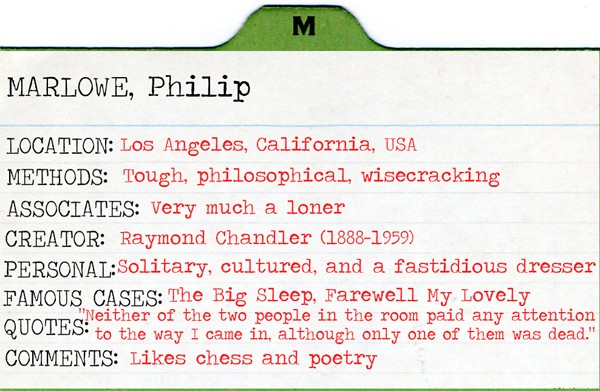 Philip Marlowe
Philip Marlowe
You’ve read about the rest. Now examine the best. Sam Spade – appearing in one major book and two short stories – may have been the archetypal PI, but it’s Philip Marlow who grew to become a fully fledged giant of private investigator fiction. Marlowe is what all men wish they were. He possesses courage that we all envy, a sharp tongue that we can only aspire to, and a deep humanity which binds us all together. Combining brilliant dialogue with complex plotting, and an assured sense of place, Raymond Chandler brought the mid-20th century landscape of Los Angeles to life for millions of readers. Its surface is tawdry glamour, but a heart beats hot within. Philip Marlowe is world weary and cynical to the bone. He meets few angels in his work, but battles many metaphorical devils.
There are so many reasons why he stands head and shoulders above those who preceded him and those who, despite several worthy successes, remain pale imitations. Personally, it is the sheer joy of his utterances which make me read the books again and again. How could you not love a man who says, “I don’t mind your showing me your legs. They’re very swell legs and it’s a pleasure to make their acquaintance. I don’t mind if you don’t like my manners. They’re pretty bad. I grieve over them during the long winter nights.”?
He is profoundly decent, can walk the proverbial mean streets with no lasting damage to his integrity or his compassion, and if he is deeply unimpressed by the more outré woman he meets professionally, he can always seek solace in literature and that eternal mental challenge – chess.
The Big Sleep (1939) sees Marlowe tangling with gang bosses, a pornography ring, and the damaged daughters of a retired general with a strange sense of morality. General Sternwood and his elder daughter are two of the most memorable characters in all fiction. “If I seem a bit sinister as a parent, Mr Marlowe, it’s because my hold on life is too slight to include any Victorian hypocrisy. I need hardly add that any man who has lived as I have and indulges for the first time in parenthood at my age deserves all he gets,” says the old man.
Farewell My Lovely (1940) features the unforgettable Moose Molloy, a giant controlled by a child’s mind, who asks Marlowe to help him trace his girlfriend, Velma Valente. We drink a heady brew of shady nightclubs, lazy cops, blackmail, marijuana and suicide. There’s a distinct lack of redemption for all concerned.
Meet Marlowe on Amazon
The PI Case Files – Part 1
The PI Case Files – Part 2
The PI Case Files – Part 3






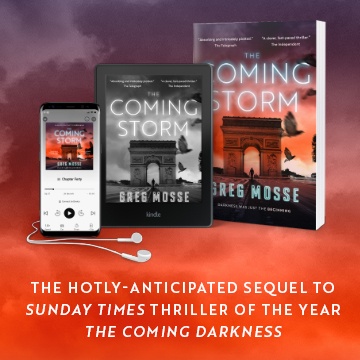
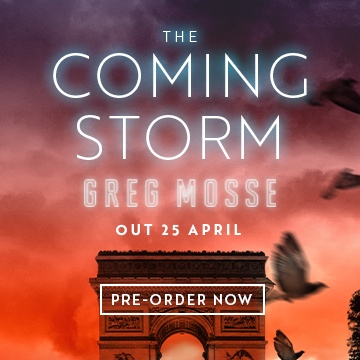
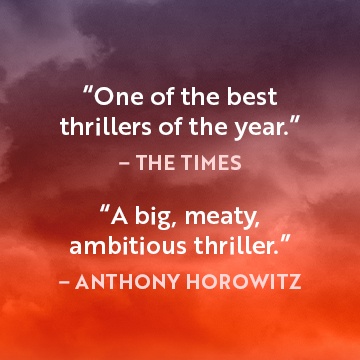
I absolutely, adore Hercule Poirot, but I have to say Charlie Parker is my all time favourite, to read Charlie Parker is to delve into a dark world of personal demons and dark angels, his ‘sidekicks’ Angel and Louie show loyalty above and beyond friendship, the slight comedy element between the three characters shows the love these three men share. The novels are well written and always blow me away with every turn. I only wish they could be made in to film. John Connelly is an extremely talented author and along with his Samuel Johnson books belongs up there with the very best
Great to see Parker here.. wondering how far off this list Elvis Cole was??
I’d have to say, after reading all 4 parts, that I probably agree with about half of them. But any list like this is so subjective.
RJR
Thanks for reading!
What would your top 12 be?
Missing Travis McGee
Excellent choice in Charlie Parker :-). He, together with his two friends, Louis and Angel, make one of the best set of characters I have read…